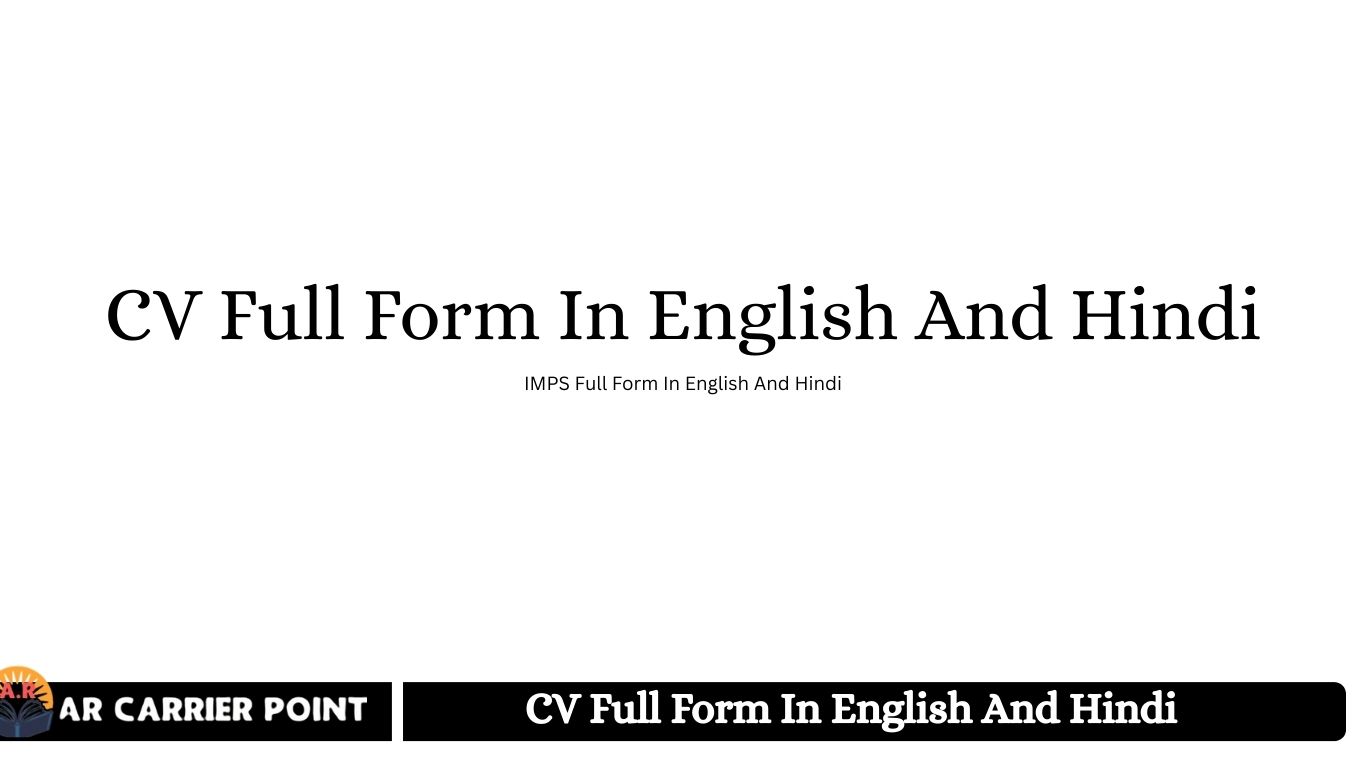CV Full Form In English
The term CV stands for Curriculum Vitae, which is a Latin phrase meaning “course of life.” A CV is a detailed document that outlines an individual’s professional and academic history. Unlike a simple resume, which is usually concise and tailored for a specific job, a CV provides a comprehensive overview of a person’s career, achievements, skills, education, publications, awards, and other professional experiences. It is widely used when applying for academic positions, research roles, scholarships, grants, or international jobs where a thorough record of qualifications is required.
The primary purpose of a CV is to present a structured and well-organized profile to potential employers or institutions, showcasing the candidate’s expertise and suitability for a role. Crafting an effective CV involves clarity, precision, and relevance, highlighting accomplishments and experiences that align with career goals. A strong CV can significantly enhance career opportunities by leaving a positive and professional impression.
CV Full Form In Hindi
CV का पूरा नाम Curriculum Vitae है, जिसका अर्थ है “जीवन का पाठ्यक्रम।” यह एक विस्तृत दस्तावेज़ होता है, जिसमें किसी व्यक्ति का शैक्षिक और पेशेवर जीवन विस्तार से प्रस्तुत किया जाता है। रिज़्यूमे की तुलना में, जो सामान्यतः संक्षिप्त और किसी विशेष नौकरी के लिए तैयार किया जाता है, CV अधिक व्यापक होता है और इसमें शिक्षा, अनुभव, कौशल, पुरस्कार, प्रकाशन और अन्य उपलब्धियों का पूरा विवरण शामिल होता है। CV का मुख्य उद्देश्य नियोक्ता या संस्थान को उम्मीदवार की योग्यताओं और अनुभवों के बारे में स्पष्ट जानकारी देना है। यह विशेष रूप से शैक्षणिक पदों, शोध कार्य, छात्रवृत्ति, अनुदान या अंतरराष्ट्रीय नौकरियों के लिए उपयोगी होता है। एक प्रभावी CV तैयार करने के लिए स्पष्टता, सटीकता और प्रासंगिक जानकारी का होना आवश्यक है। सही तरीके से तैयार किया गया CV आपके करियर के अवसरों को बढ़ा सकता है और पेशेवर छवि बनाने में मदद करता है।
Read More: OCD Full Form In English And Hindi
Frequently Asked Questions
What does CV stand for?
CV stands for Curriculum Vitae, which means “course of life.”
How is a CV different from a resume?
A CV is more detailed and comprehensive, while a resume is usually brief and tailored for a specific job.
When should I use a CV?
A CV is commonly used for academic positions, research roles, scholarships, grants, or international job applications.
What information should a CV include?
It should include personal details, education, work experience, skills, achievements, publications, and awards.
How long should a CV be?
There is no strict limit, but it should be thorough yet concise, usually ranging from two to several pages depending on experience.
Can I customize my CV?
Yes, tailoring a CV to highlight relevant skills and experiences for a specific role can make it more effective.
Why is a CV important?
A well-prepared CV helps create a professional impression and increases the chances of being shortlisted for opportunities.
Conclusion
In conclusion, a CV or Curriculum Vitae is an essential document that provides a complete overview of an individual’s academic and professional journey. It serves as a powerful tool to present skills, achievements, and experiences in a structured manner to potential employers or institutions.
A well-crafted CV not only highlights qualifications but also demonstrates professionalism, attention to detail, and career focus. Whether for academic, research, or international job applications, an effective CV can significantly enhance opportunities and create a lasting impression. Regularly updating the CV ensures it reflects current achievements and relevant experiences, making it a vital component of career growth and success.

